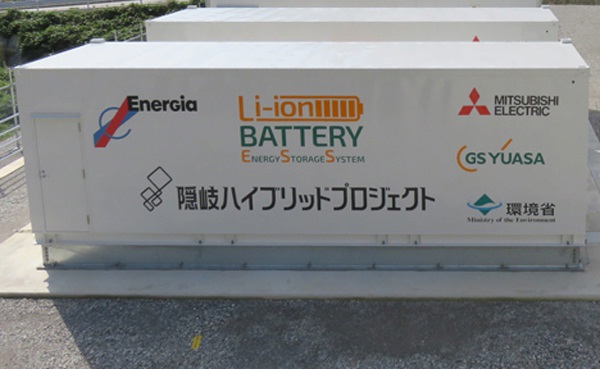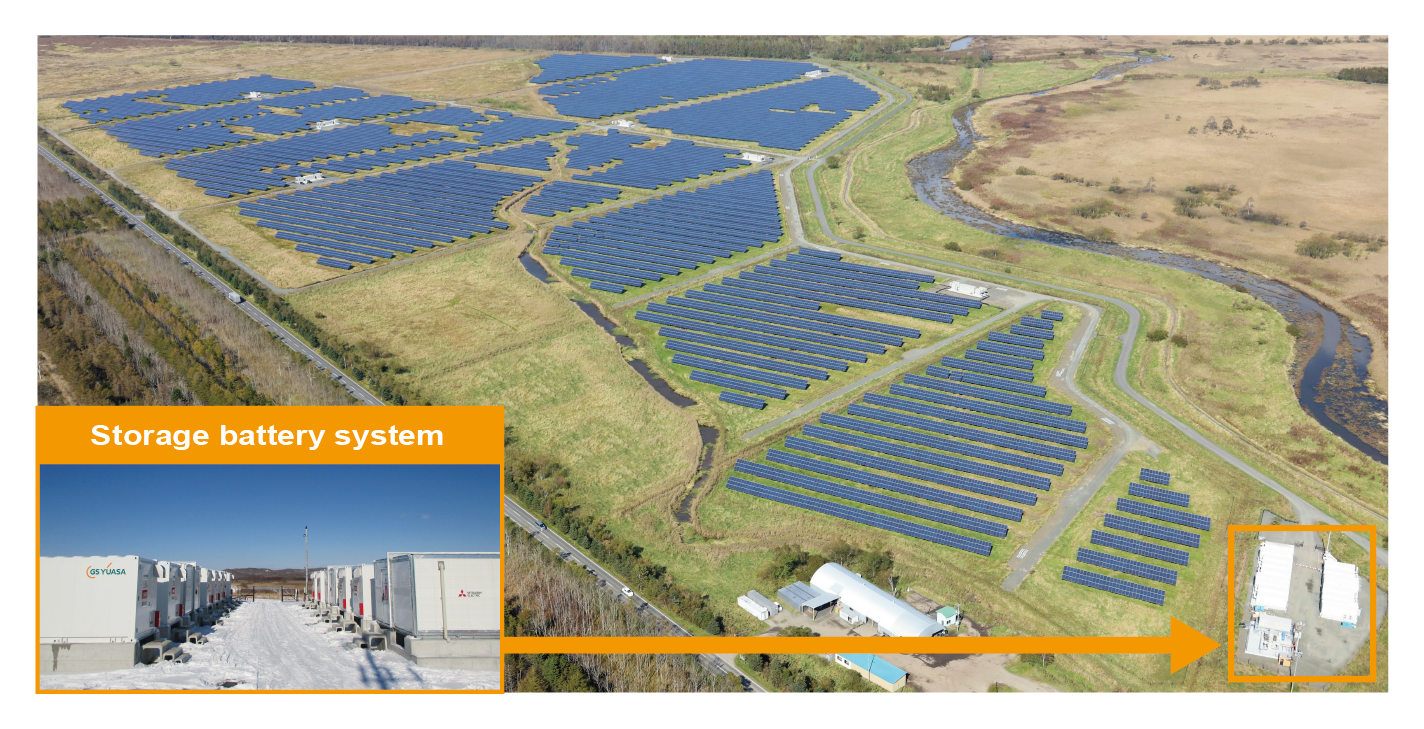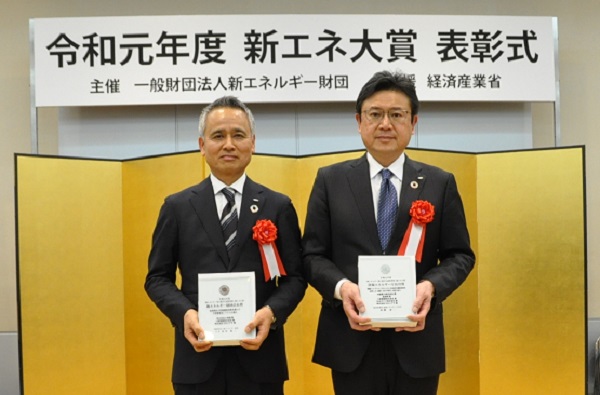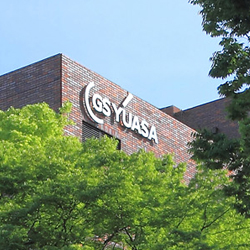GS Yuasa Corporation (Tokyo Stock Exchange: 6674; “GS Yuasa”), together with a local government body and partner companies, has been awarded the Agency for Natural Resources and Energy Commissioner’s Prize and the New Energy Foundation Chairman’s Prize at the 2019 New Energy Awards hosted by the New Energy Foundation in recognition of projects involving installation of lithium-ion battery systems.
Overview of Prizes
1. Agency for Natural Resources and Energy Commissioner’s Prize
(1) Project name:
“Oki Hybrid Project”
Japan’s first community-based renewable energy installation/expansion project harnessing cutting-edge technology
(2) Joint prize recipients:
The Chugoku Electric Power Company, Inc., Shimane Prefectural Government, Mitsubishi Electric Corporation, and NGK Insulators, Ltd.
(3) Summary:
With the goal of expanding the use of renewable energy (wind and solar power) on the Oki Islands, which are not connected to the power grid on Japan’s main island of Honshu, this initiative successfully secured power quality and lowered upfront costs thanks to the installation of a hybrid electricity storage system combining two different types of storage batteries.
By providing small-capacity, high-output lithium-ion batteries for the hybrid electricity storage system, GS Yuasa contributed to expanding renewable energy capacity installed on the Oki Islands from roughly 2,300kW to about 8,000kW in a short period of time.
(4) Key points leading to awarding of prize:
• On the outlying Oki Islands where power quality is significantly affected by changes in electricity demand and the volume of power generated, the installation of a hybrid system combining two types of storage systems to combat fluctuations in renewable energy (wind and solar power) output provided the islands with a commercial power system with which supply and demand can be managed in an integrated manner with the islands’ internal combustion engine power generators.
• The hybrid electricity storage battery system combines lithium-ion batteries (2,000kW) and NAS batteries—the former are suited to addressing short-period fluctuations and the latter long-period fluctuations. The system boasts low startup costs, enhances system efficiency, and improves charge and discharge control.
• The system has the potential to be widely implemented on isolated islands not only in Japan, but around the world.
2. New Energy Foundation Chairman’s Prize
(1) Project name:
Installation of large storage battery system to mitigate short-period output fluctuations
(2) Joint recipients:
Obayashi Corporation and Mitsubishi Electric Corporation
(3) Summary:
As solar power generation output fluctuates sharply depending on changes in the weather, the impact this has on the balance of supply and demand needs to be limited when power companies connect such facilities to power grids.
The storage battery system used in the project (lithium-ion batteries: 6,748.8kWh; storage battery PCS: 10,000kW) was developed for the purpose of mitigating short-period output fluctuations and installed at a large-scale photovoltaic power plant in Toritoushigenya in Kushiro, Hokkaido. GS Yuasa’s lithium-ion batteries can respond accurately to high-speed charge and discharge control and are capable of withstanding harsh environments. By carrying out performance analyses based on actual data and making system improvements ever since the system came online, it is now operating stably as an even better storage battery system.
(4) Key points leading to awarding of prize:
• Three private companies worked together to develop a storage battery system that meets the technical requirements indicated by a power company as conditions for connecting to its large-scale photovoltaic power generation system. It was the first time such a system had been connected with a fully operational large-scale photovoltaic power generation system.
• Installation and operational costs for the newly developed storage battery system were kept to a minimum by optimizing the installed capacity of the storage batteries and controlling the rate of change in generated solar power output so that frequency remains unaffected.
• No private company had ever installed a storage battery system for the purpose of mitigating output fluctuations at a commercially operated large-scale photovoltaic power plant. The knowledge and technological know-how gained from the project can be reflected in areas where there are issues relating to controlling fluctuations, both in Japan and overseas.
GS Yuasa recognizes that climate change driven by global warming is a significant issue facing society. The company will make every effort to help reduce the amount of greenhouse gases emitted by society at large by encouraging the popularization of renewable energy with the use of the company’s storage battery technologies.
*About the New Energy Awards
With the goal of promoting greater utilization of renewable energy, encouraging its uptake, and raising awareness, the New Energy Awards hosted by the New Energy Foundation recognizes outstanding achievements from among the many applications it receives for renewable energy-related products and cases of renewable energy introduction, as well as awareness-raising activities.
Images
■1. Agency for Natural Resources and Energy Commissioner’s Prize
(1) Lithium-ion battery system at Nishinoshima Transformer Station in Oki, Shimane Prefecture

■(2) Prize emblem

■2. New Energy Foundation Chairman’s Prize
(1) Lithium-ion battery system at the photovoltaic power plant in Toritoushigenya in Kushiro, Hokkaido

■(3) Prize emblem

■3. Managing Director Masaru Sawada (left) and President Osamu Murao (right) at the prize-giving ceremony held on January 29






